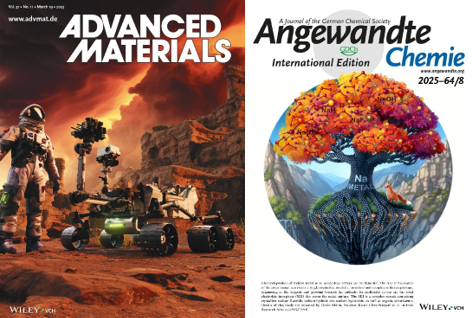A group of researchers, led by David Mitlin and Yixian Wang, have recently published impactful research in Advanced Materials and in Angewandte Chemie, both articles making the journals’ front cover.
Their work addresses critical challenges related to premature failure in anode-free solid-state batteries and in anode-free sodium metal batteries, both technologies promise to tremendously improve how society stores renewable energy. The UT team led a large effort that included Purdue University, Stony Brook University, RIT, Brookhaven National Laboratory, Los Alamos National Laboratory. With a joint experimental - simulation effort, the team was able to discover the underlying mechanisms that led to catastrophic short-circuit failure. They were the first to explain and to control the self-amplifying negative synergy of interfacial corrosion and growth of metal filaments, known as dendrites.
The team’s work is expected to have a significant impact on the field, advancing the development of high-performance batteries for a sustainable energy future. These advancements hold significant promise for improving the safety and efficiency of energy storage systems, with applications ranging from grid-level storage, to electric vehicles, to military, and space exploration.


